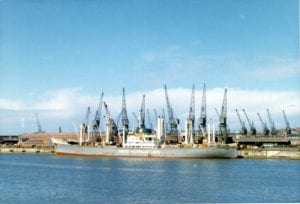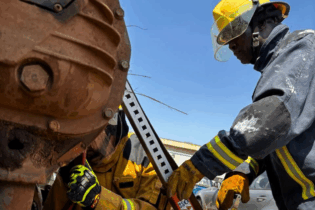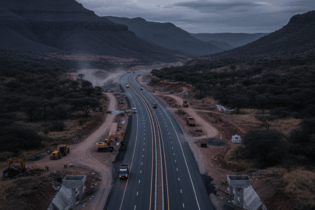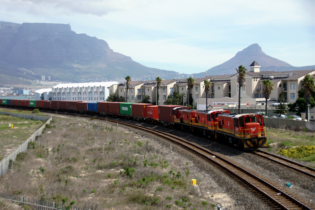Plans by Transnet’s National Ports Authority to apply for a tariff hike in the next financial year to help fund the upgrading of South Africa’s ports are necessary and will be good for the country’s economy in the medium- to long-term future.
So says Peter Moodley, Managing Director of CargoTransit Insurance Underwriting Managers, writing on behalf of Compass Insurance Company Limited. “The tariff increases are for various commodities and differ from category to category – they are not, in fact, a universal 14% across the board. The upgrading of the harbours must be done and without implementing the planned tariff increases, I can’t see any other way to obtain the necessary funding for the required upgrades.” Moodley continues, “Our ports and our rail system need to be upgraded to handle the volumes. Such an upgrade would allow our road transport system to complement the railway and ports infrastructure. In this vein, we should also welcome the announcement that Transnet has signed a deal for 96 diesel locomotives with China South Rail’s Zhuzhou Electric Locomotive for Transnet Freight Rail.” Moodley says that the more South African ports are able to import and export goods through increased turnaround times, the more competitive the country could become, adding that he does not necessarily see that the proposed tariff increase will impact on the country’s export competitiveness.“I believe that the turn-around times will set the competitiveness,” he says. “How do we export more? It’s all about getting the goods to the greater global market and the country as a whole would benefit from extra volumes being exported. If the efficiencies of the ports are up to standard, we will improve volumes accordingly. I also include the need to improve the railway network system. As an example, we can’t move our coal and citrus fruit and other commodities out of the country fast enough.
“I also believe that on certain strategic commodities where South Africa is the main producer in the world, we should set the prices. Where we have an abundance of commodities, we should be price setters and not price takers. Why are others dictating the price of our raw materials?” Moodley says he does not believe that the planned tariff hikes by the National Ports Authority will necessarily require increases on marine cargo and transit insurance premiums. “The fact is that there would be more income for the insurance industry if there was more volume passing through the ports, because there would be more cargo insured. We rate the value of the cargo to its risk exposure and the volumes decide what the market should charge. “In terms of competiveness, we should be putting more effort into breaking down trade barriers so we don’t pay higher import duties in the countries where we trade. On perishables alone, we export R15 billion worth annually.” “In order to help maintain our country’s infrastructure, we should also consider other funding measures such as raising special government bonds for our ports and harbours in the same way that we do for roads and other infrastructure. We should also look at obtaining soft line credit from countries with whom we trade, for example India and China,” he concludes.






